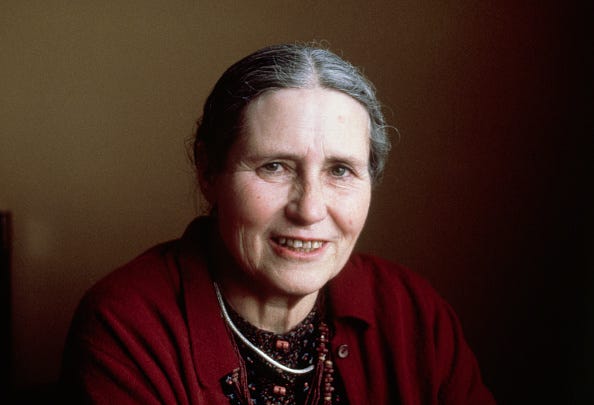The Writer's Almanac from Sunday, October 22, 2017
“Only This Morning” by Dan Gerber from Particles. © Copper Canyon Press, 2017.
ORIGINAL TEXT AND AUDIO - 2017
Today is the birthday of American journalist and poet John Silas “Jack” Reed, born in Portland, Oregon (1887). He’s the author of Ten Days That Shook the World (1919), his firsthand account of Russia’s 1917 October Revolution.
An ardent communist, Reed was indicted for sedition in 1919. He fled the United States, and made his way to Russia by way of Scandinavia. He grew somewhat disillusioned with the Russian Revolution and tried several times to return to the United States, even though he knew he would be arrested. However, he became ill and died of typhus in a Moscow hospital in 1920. He is one of only two Americans to be buried in the Kremlin Wall Necropolis.
Scotland suffered its worst-ever mining disaster on this date in 1877. More than 200 people died in an explosion at the High Blantyre Colliery. Coal mines are full of hazards, including an extremely flammable gas mixture known as “firedamp.” Firedamp builds up between the layers of coal and is released as the coal is mined. It takes very little to set it off. If you survive a firedamp explosion, you are then faced with “afterdamp”: the release of carbon monoxide that results from the combustion of the gas. The Blantyre explosion was said to have lasted a full four or five minutes. As news of the disaster spread, workers from nearby pits came to Blantyre to lend their aid. Though they worked tirelessly for weeks, they were only able to recover a few bodies and even fewer survivors. The Blantyre disaster left 92 women widowed and 250 children without their fathers.
Today is the birthday of British novelist and feminist icon Doris Lessing, born Doris May Tayler in Kermanshah (now Persia), Iran (1919). Lessing is best known for her novel The Golden Notebook (1962), which became a kind of handbook for the feminist movement of the 1960s and ’70s.
Lessing wrote most often about women’s struggles with motherhood, sex and sexuality, depression, and conflict. She published The Golden Notebook in 1962. The story of a would-be writer named Anna Wulf who tries to live as freely as a man, the book became an international best-seller. Vogue called it “dismal, drab, embarrassing, sodden with a particularly useless form of self-pity ...” but it caught on and became a bible for the feminist movement, which frustrated Lessing, who thought the book was more about mental disintegration. She said: “It’s stupid. I mean, there’s nothing feminist about The Golden Notebook. The second line is ‘As far as I can see, everything is cracking up.’ That is what The Golden Notebook is about!”
It’s the birthday of novelist and columnist John Gould, born in Brighton, Massachusetts (1908). When he was 15, Gould wrote the editor of the Brunswick Record and said that he wanted to help out at the paper somehow. The editor told him to start sending in news, and he ended up writing for the Brunswick Record for 16 years. Eventually he wrote for other papers as well, including the Boston Post and the Christian Science Monitor — where wrote his first weekly column in 1942, and he continued that column for more than 60 years, until his death in 2003.
Gould wrote about baseball, nighttime sleigh rides, fly fishing, a 100-year-old woman riding on a fire truck for the first time, his mother’s homeland of Prince Edward Island, molasses cookies, and how you should never forget to tell your bees if there has been a birth, wedding, or death in your family. In 1959, he began a column: “It’s the little things that count, and if somebody will just tell me where I can catch a three-tined fork, about so big and so long, things may improve about the old homestead. We’ve lost ours.” In response, he received plenty of suggestions about where to shop as well as quite a few three-tined forks from loyal fans.
His book Farmer Takes a Wife (1945) was a big best-seller. His other books include The Fastest Hound Dog in the State of Maine (1953) and Tales from Rhapsody Home; or, What They Don’t Tell You About Senior Living (2000).






Today is the birthday of American journalist and poet John Silas “Jack” Reed, born in Portland, Oregon (1887). He’s the author of Ten Days That Shook the World (1919), his firsthand account of Russia’s 1917 October Revolution.
TODAY IS SUNDAY OCTOBER 22 AND HERE'S A HELPFUL QUIP FOR THE ENTRY TO "WRITER'S ALMANAC."
=====
"An ardent communist, Reed was indicted for sedition in 1919. He fled the United States, and made his way to Russia by way of Scandinavia. He grew somewhat disillusioned with the Russian Revolution and tried several times to return to the United States, even though he knew he would be arrested. However, he became ill and died of typhus in a Moscow hospital in 1920. He is one of only two Americans to be buried in the Kremlin Wall Necropolis.
======
DON'T YOU LOVE THE PHRASE ABOVE THAT JACK REED WAS "SOMEWHAT DISILLUSIONED"? GOOD GRIEF! IT WAS FAR MORE THAN THAT. PEOPLE WERE SHOT ONE BY ONE. THERE WAS MURDER AND TYPHUS. TAKE YOUR PICK. JACK MADE THE WRONG ONE FROM THE WRONG PLACE. AT LEAST HE WAS IN A COMMUNITY HOSPITAL. WITH ALL WE HAVE HERE, JACK, YOU MADE THE WRONG CHOICE. BUT IT WAS A GOOD LESSON FOR THE REST OF US.
Thanks for the in- and out-sites from your team, GK.